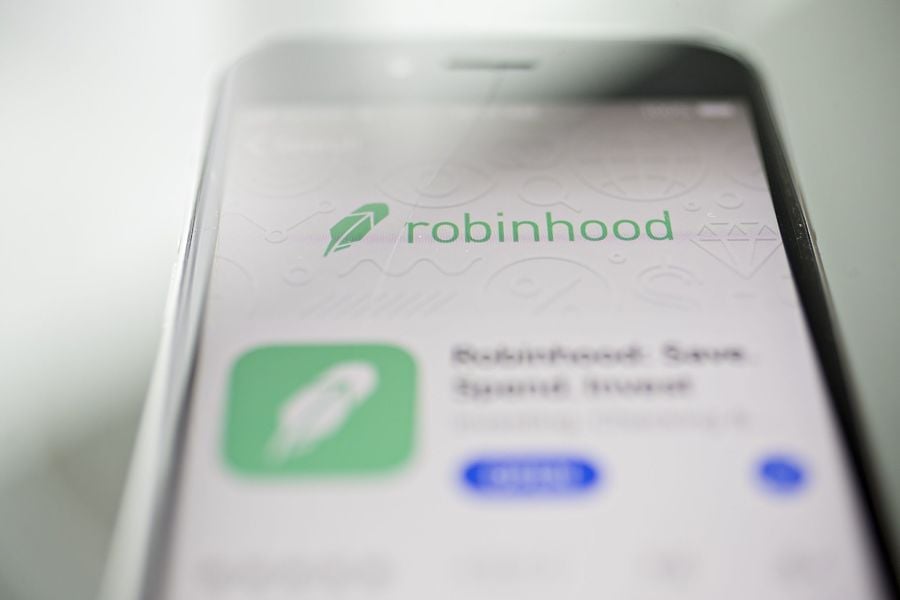

Robinhood Markets faces a U.S. regulatory probe into whether the company properly informed brokerage clients that it sold their stock orders to high-frequency traders and other Wall Street firms, according to a person with direct knowledge of the matter.
The Securities and Exchange Commission scrutiny is focused on Robinhood’s disclosures prior to 2018, when the company altered its website to make information on how it earned money easier to find, said the person, who asked not to be named because the review isn’t public.
The SEC probe was first reported by the Wall Street Journal, which said Robinhood may pay a fine exceeding $10 million to settle the investigation.
“We strive to maintain constructive relationships with our regulators and to cooperate fully with them,” a Robinhood spokesperson said in a statement. “We do not discuss or comment on our communications with our regulators.”
The SEC didn’t immediately respond to a request for comment.
Robinhood, founded in 2013, built its customer base and reputation by offering no-fee stock trading and a rebellious attitude toward finance. Key to the company’s success is its popular smartphone app, which allows trades with a quick swipe and heralds transactions with a burst of virtual confetti.
But from the start, Robinhood made most of its money from payment for order flow, a controversial practice employed by almost all retail brokerages in which they sell customer orders to high-speed traders and other market makers. The outside firms execute the trades, earning a small profit off each transaction. Regulators have long been concerned that the transactions might not have the best interests of brokerage clients in mind.
Robinhood didn’t widely publicize its use of payment for order flow until October 2018, days before Bloomberg reported that the firm made almost half of its revenue from selling customers’ orders to firms including Citadel Securities and Two Sigma Securities.
Robinhood was founded by Vlad Tenev and Baiju Bhatt, who said they were moved to create the company after the 2008 financial crisis. Criticisms raised by the Occupy Wall Street protests in 2011 hit them like a “gut punch,” Bhatt said in a 2018 interview. Inspired by the movement, the pair left the previous company they’d started, which ran servers for high-frequency traders, to start Robinhood. “We were part of the problem,” Bhatt said.
Following questions about payment for order flow from Bloomberg in 2018, the company amended the “How We Make Money” section of its website, and published a letter from Tenev, outlining the practice. Until the letter, it was difficult to find any mention of payments for order flow on the company’s website, though it linked to required disclosures about the practice in fine print.
The disclosure had little impact on the firm’s growth, which has accelerated sharply since the coronavirus pandemic forced people to work from home this year.
In the first quarter of 2020 alone, Robinhood racked up 2 million new accounts, exceeding the combined number of new users at Charles Schwab Corp., TD Ameritrade Holding Corp. and ETrade Financial Corp. during the period.
As of May, the company had 13 million accounts, up from 10 million at the end of 2019. Its revenue from selling orders was $180.1 million for the second quarter, double what it took in for the prior three months, according to a regulatory filing.
The scrutiny over payment for order flow isn’t the only SEC probe Robinhood faces. The agency -- along with brokerage watchdog the Financial Industry Regulatory Authority -- is also investigating a March outage of the company’s app that sidelined customers for almost two days, Bloomberg reported Monday, citing people familiar with the matter. Among the issues the agencies are investigating is how Robinhood responded to client complaints.

Canadian stocks are on a roll in 2025 as the country prepares to name a new Prime Minister.

Two C-level leaders reveal the new time-saving tools they've implemented and what advisors are doing with their newly freed-up hours.

The RIA led by Merrill Lynch veteran John Thiel is helping its advisors take part in the growing trend toward fee-based annuities.

Driven by robust transaction activity amid market turbulence and increased focus on billion-dollar plus targets, Echelon Partners expects another all-time high in 2025.

The looming threat of federal funding cuts to state and local governments has lawmakers weighing a levy that was phased out in 1981.
RIAs face rising regulatory pressure in 2025. Forward-looking firms are responding with embedded technology, not more paperwork.
As inheritances are set to reshape client portfolios and next-gen heirs demand digital-first experiences, firms are retooling their wealth tech stacks and succession models in real time.
